The 10 greatest Gibson SG players
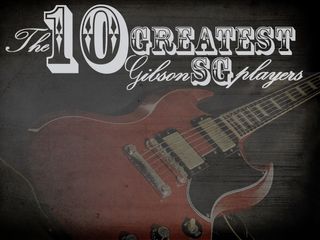
The 10 greatest Gibson SG players
Gibson’s SG is 50 years old, and to celebrate a half-century of tremendous tone, click onwards to see our selection of the greatest players ever to make an SG sing…
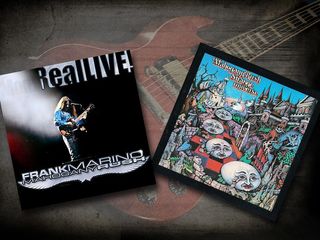
Frank Marino
The Mahogany Rush mainman is a true guitarist’s guitar player, and is rarely afforded the respect his powerful tone and superb Hendrix-influenced lead playing deserves.
He’s been widely renowned for tonehound tendencies, modding amps and pedals, and sporting gargantuan pedalboards – but his beloved 1961 Les Paul SG has always been the essential link in the signal chain.
Listen: Mahogany Rush - Land Of 1000 Nights (1975)
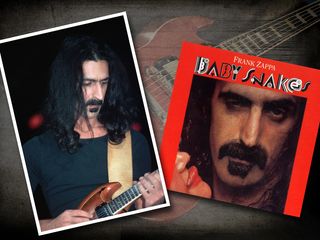
Frank Zappa
Frank used two main SGs during the 1970s: an SG with a black full-body pickguard and stripped headstock nicknamed ‘Roxy’, and a walnut mongrel nicknamed ‘Baby Snakes’.
Both were heavily modified; Baby Snakes had a non-Gibson neck, a built-in preamp, coil taps, phase selectors, and an onboard Dan Armstrong Green Ringer fuzz/octaver. At one point he used 0.007-gauge E strings and an incredibly low action.
Listen: Baby Snakes (1977)
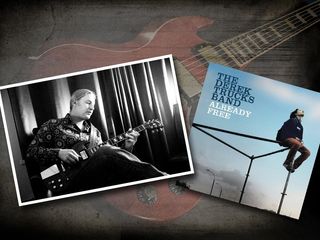
Derek Trucks
The slide supremo is synonymous with his 1961 Reissue SG, which was built in 2000. He chose the model because when he was gigging at the tender age of nine, he found a Les Paul to be too heavy...
“I also saw a picture of Duane Allman with an SG and that look has always stuck with me,” he told Gibson’s website.
Listen: The Derek Trucks Band - Down Don't Bother Me (2009)

Sister Rosetta Tharpe
Performing from the age of four onwards, “Little Rosetta Nubin, the singing and guitar playing miracle” was a gospel sensation. A conduit for jazz, blues and all the music she was exposed to during her showbiz upbringing, she became a huge star in the late 1930s.
Her style was an influence on many of the pioneers of rock ’n’ roll, and footage of her on Chicago’s 1962 TV Gospel Time show proves why. Clutching an immaculate-looking Polar white Les Paul/SG Custom and peeling off dextrous picked bends and doublestops through a cranked Gibson GA-8 Discoverer amp, her performance is testament to an unearthly talent.
Listen: Up Above My Head (live television performance, circa 1960)
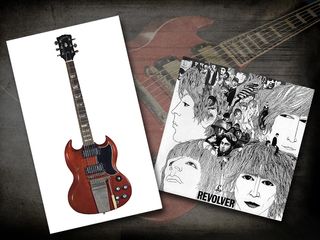
George Harrison
In 1966, around the same time Lennon and Harrison were following McCartney’s lead and adopting the Epiphone Casino, George also took delivery of a 1964 SG Standard.
It was his main guitar on Revolver, featured on some later recordings, and was used sporadically for live work in 1966, before he gave it to Pete Ham of Badfinger around 1969.
Listen: The Beatles - Hey Bulldog (1968)
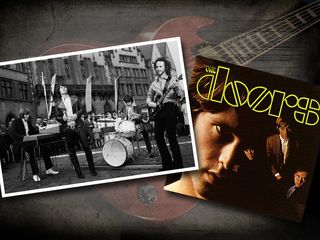
Robby Krieger
If you haven’t heard them for a while, listen again to The Doors and pay attention to Robby Krieger’s sinuous blending of diverse blues, jazz, rock, exotic flamenco and Indian styles.
Also notice his unusual fingerpicking-only technique; and of course the fluid tones he wrangled from his 1964 SG Special with P-90s, mostly through Fender Twins.
Listen: The Doors - Love Me Two Times (1967)
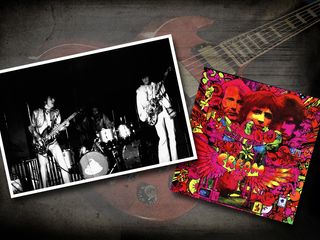
Eric Clapton
During the triumphant Cream era, between 1967 and the band’s demise in 1968, Clapton brandished and recorded with a 1964 SG Standard that was to become one of the most iconic guitars in history.
Inspired by the work they’d done for The Beatles, EC commissioned Simon Posthuma and Marijke Koger, known as Dutch artist collective and band The Fool, to ‘psychedelicise’ the SG prior to the band’s 1967 US tour. The following year, either Eric or George Harrison loaned it to Jackie Lomax, who sold it to Todd Rundgren in 1972 for a bargain $500. Rundgren renamed it ‘Sunny’ and eventually auctioned it in 2000 for $150,000.
Listen: Cream - Sunshine Of Your Love (1967)
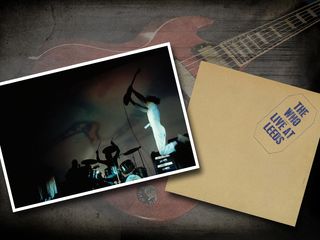
Pete Townshend
Townshend favoured* Cherry SG Specials with P-90s into enormous HiWatt Custom 100 DR 103 amps between late 1968 and 1971 – the era that included the classic Live At Leeds, perhaps the finest live album ever.
He first played an SG Special live in July 1968, and bought his first from Manny’s Music in New York.
Listen: The Who - Magic Bus (Live 1970)
*To smash to smithereens
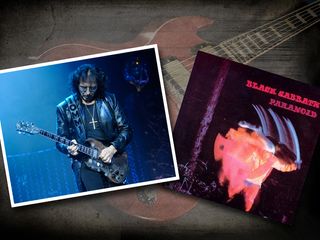
Tony Iommi
SG Signature Artist Tony Iommi’s red 1965 SG Special with P-90s, named ‘Monkey’, was drafted in as a replacement for his Strat, which developed a faulty neck pickup during the recording sessions for Black Sabbath’s eponymous debut.
He replaced the pickups with lower-powered specimens, filed the frets down, raised the action, down-tuned the strings, cranked his Laneys and voilà – heavy metal was summoned forth from the void.
Listen: Black Sabbath - Paranoid (1970)
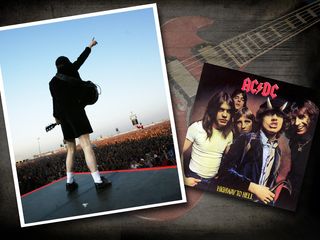
Angus Young
Angus Young favours the SG for its light weight – useful for high-voltage guitar heroics – and also because his 1968 Standard (Lyre vibrato removed) has an uncommonly thin neck.
Live, his is the archetypal roar of vintage pickups through Marshall stacks, without a pedal in sight. Angus in full flow remains one of the premier sonic experiences in all the classic rock kingdom.
Listen: AD/DC - Highway To Hell (1979)

Guitarist is the longest established UK guitar magazine, offering gear reviews, artist interviews, techniques lessons and loads more, in print, on tablet and on smartphones
If you love guitars, you'll love Guitarist. Find us in print, on Newsstand for iPad, iPhone and other digital readers

“Why am I using this digital monstrosity when it flies in the face of all my principles that I have acquired over decades?”: Guthrie Govan makes the case for the all-digital guitar rig – it’s all about the F-word

“This is a bass that I fell in love with at a pawnshop and used to play the first Rage record”: Ernie Ball Music Man and Tim Commerford team up for a pair of limited run signature StingRay basses

“Why am I using this digital monstrosity when it flies in the face of all my principles that I have acquired over decades?”: Guthrie Govan makes the case for the all-digital guitar rig – it’s all about the F-word

“This is a bass that I fell in love with at a pawnshop and used to play the first Rage record”: Ernie Ball Music Man and Tim Commerford team up for a pair of limited run signature StingRay basses
Most Popular




